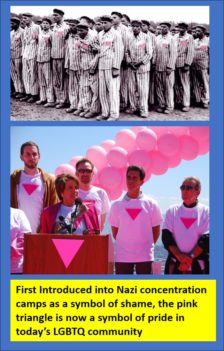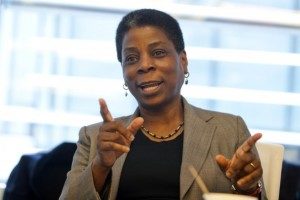As a diversity consultant who often address these same issues, I am a big proponent of transporting people out of their daily lives through the performing arts to give them a fresh prospective on societal issues. (see additional blogs at the bottom of this one.) What is particularly unique about The Justice Theater Project is that in addition to offering various plays, they pair that with pre-show discussions, highlighting community organizations, educational opportunities and outreach.
The Justice Theater Project’s 2017 – 2018 season is titled “Equity and Identity” and is addressing issues such as racism, homophobia and classism. The season’s first play last fall, “A Soldier’s Play” dealt with various issues around racism through this murder mystery set in a 1944 desegregated army base in Louisiana. And now the upcoming play is “Bent”; this path-breaking drama is a lesson in history, a cautionary tale, and a tragic love story about the Third Reich’s persecution of homosexuals. Homosexuals in Nazi Germany were ranked at the very bottom of the human scale, and the pink triangle, a sewn-in badge of shame, was introduced into the Nazi concentration camps.

Indeed looking back at recent history through plays such as “A Soldier’s Play” and “Bent” delivers insight into the harm done to marginalized groups, how they cope with their challenges, and that society as a whole needs to take ownership to address it.
The play runs February 9 -11 and 15 – 18. Earlier community activities include a movie showing and a book discussion about “The Pink Triangle.” For a full listing of activities and to purchase tickets to the “Bent” show, visit The Justice Theater Project’s “Bent” show web page.
And now some big personal news! My own involvement with “Bent:”
• At the February 9th show, I will be representing the Raleigh Business and Professional Network, Raleigh’s LGBT Chamber Commerce, giving the five minute intermission advocate introduction and staffing an information table after the show.
• And at the Saturday evening February 10th performance, I will lead the 6:30 p.m. pre-show discussion sharing my “Eight Life Lessons as an Out Gay Man that can apply to everyone,” discussing coming out, LGBT workplace issues and more. This pre-show event is free, and you may attend if even you are not staying for the play.
I look forward to seeing many of you at The Justice Theater Project’s production of “Bent!”
# # # # #
Links to support The Justice Theater Project and to previous blogs about diversity and inclusion being promoted through the performing arts:
• You can support the work of this wonderful organization through sponsorship or becoming a season subscriber – details on the JTP website.
• I introduce the JTP through the blog “The Justice Theater Project – Societal Impact Through the Performing Arts.”
• “Promoting Diversity and Inclusion Through Bluegrass Music,” is about an innovative annual concert called “Shout and Shine” of diverse Bluegrass musicians. This celebration came about in 2016 as a direct response to North Carolina’s oppressive HB2 “bathroom bill” discriminating against our LGBT citizens.
• “A great diversity experience – Theater Breaking Through Barriers” about enjoying an off-Broadway play in New York City which featured actors with a wide range of disabilities.



